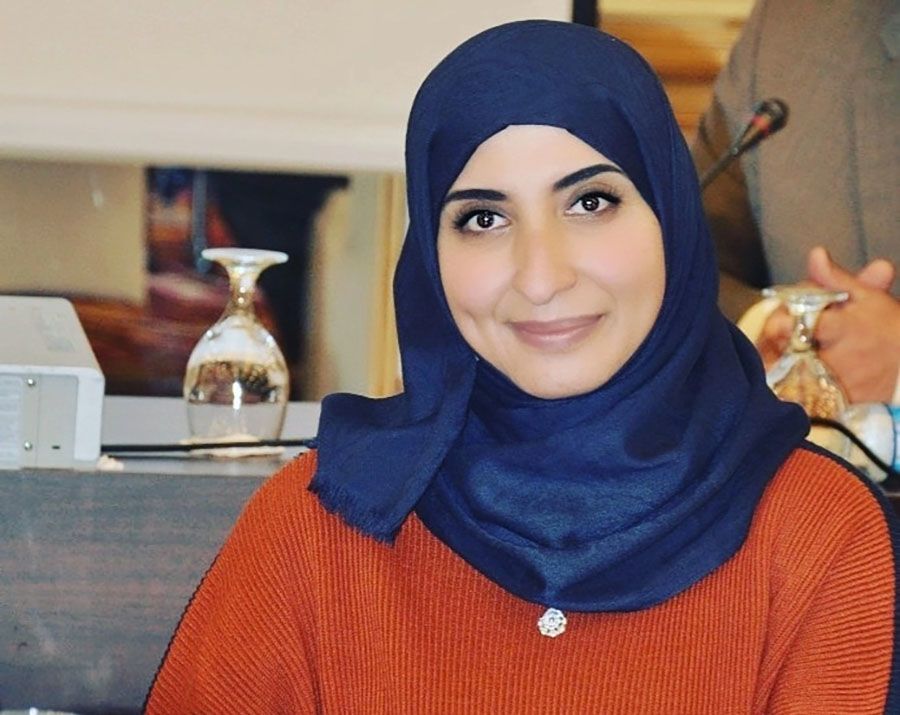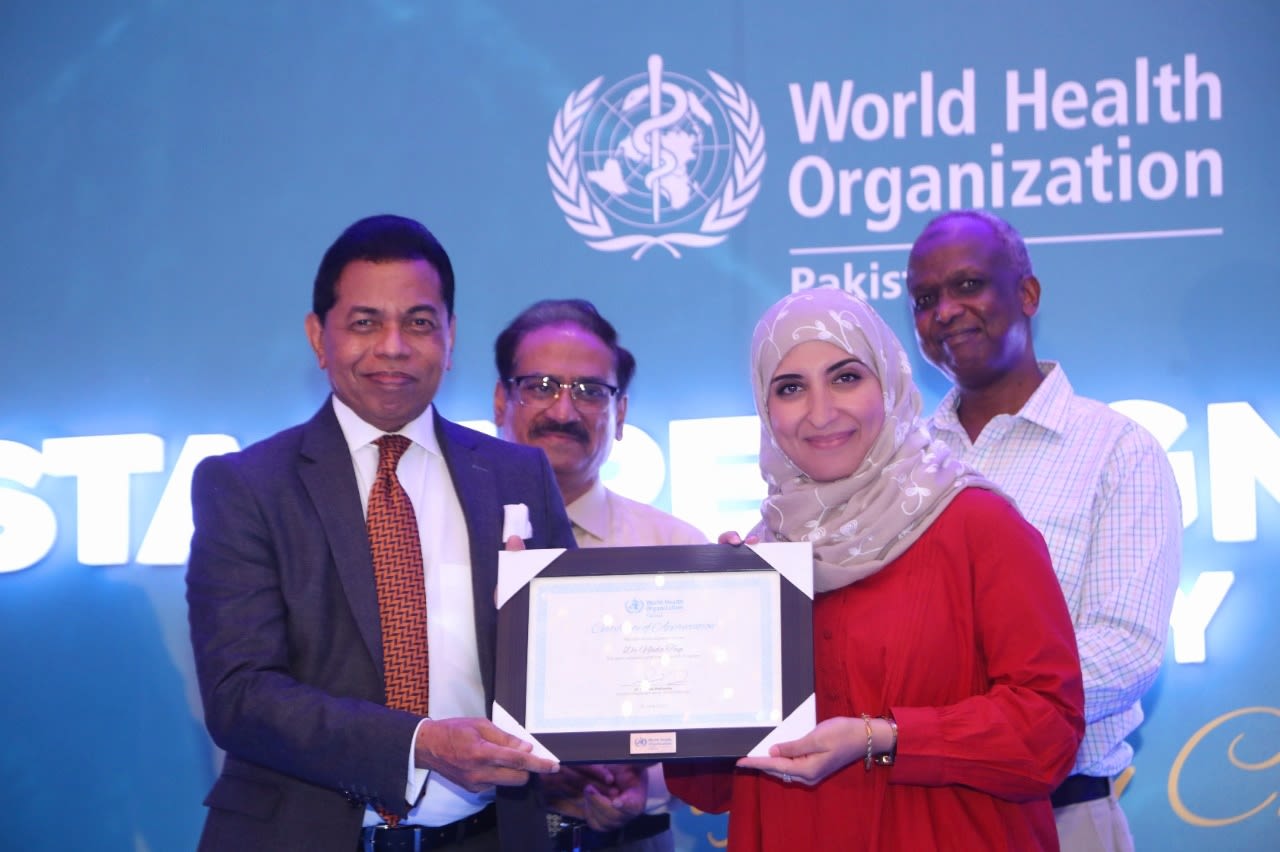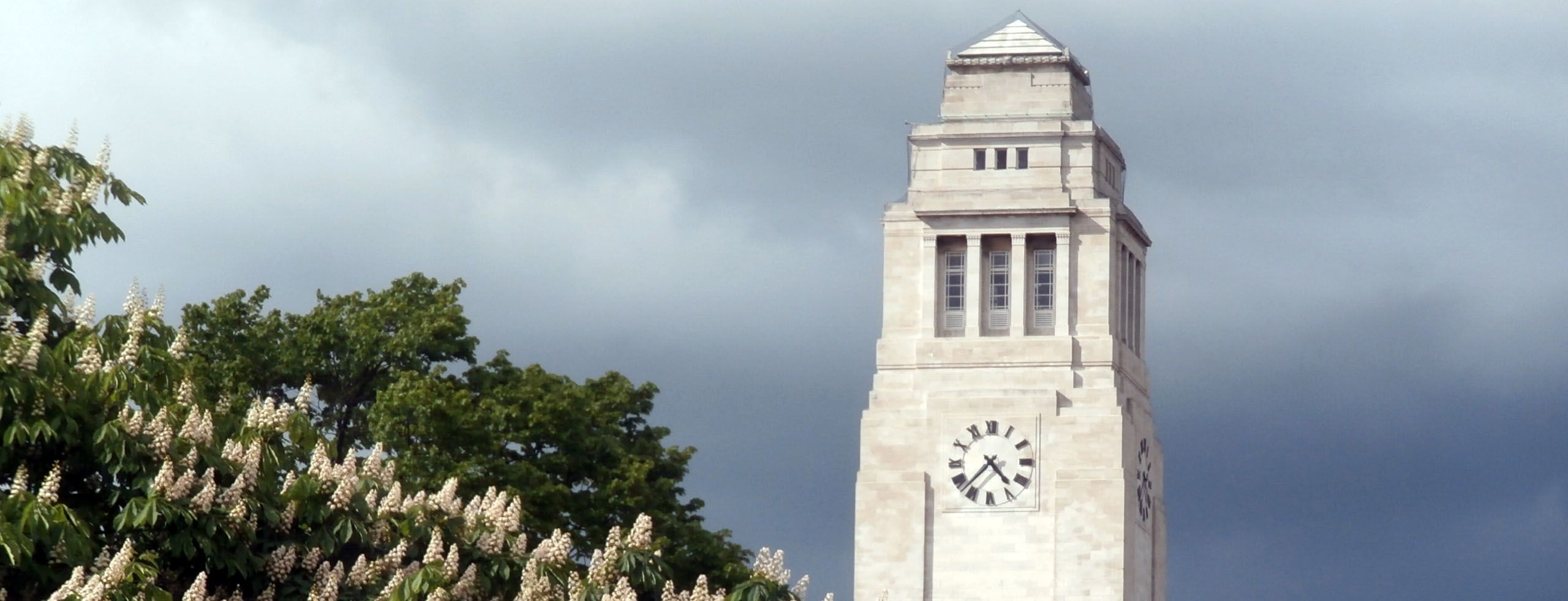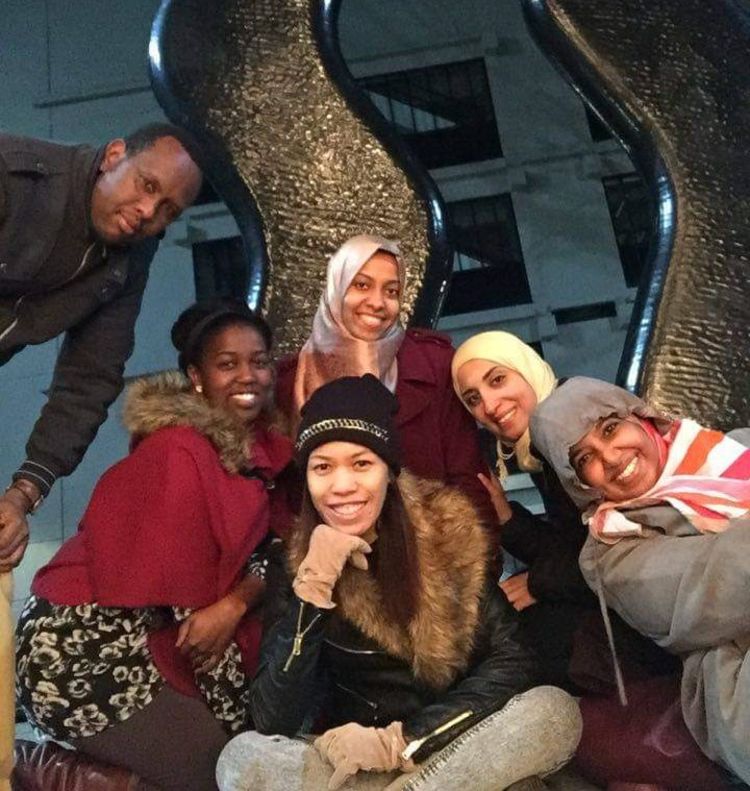Leeds at the WHO: Nada Taqi
Leeds graduate Nada Taqi is an Immunization Consultant, Global Programme for Vaccines and Immunization, at the World Health Organization (WHO).

Leeds graduate Nada Taqi, Immunization Consultant, Global Programme for Vaccines and Immunization
Leeds graduate Nada Taqi, Immunization Consultant, Global Programme for Vaccines and Immunization
Nada graduated from the University of Leeds in 2016 with a Masters in Health Management Planning and Policy. She tells us about her work with the WHO, first in Yemen and now in Pakistan.
What did you do after your studies at Leeds?
I went back to my country Yemen, where I was promoted to the position of the National Coordinator of the Polio program. I lead the country’s Polio eradication process in the Ministry of Public Health.
Then in 2018, I had the opportunity to serve my country differently by joining the WHO emergency programme in Yemen. I worked to strengthen the health system as the technical officer of the minimum service package projects.
I managed and oversaw many health projects simultaneously through contracting national and international non-governmental organizations (NGOs). These projects aimed to support health services at all levels of care, strengthen the health referral system and decrease mortality and morbidity, especially that of vulnerable populations, women and children.
This included planning, execution and follow-up of health-strengthening projects that aimed to sustain and increase accessibility, availability and affordability of quality health services during the war in Yemen.
“To achieve universal health coverage we need strong political will and leadership, as well as social demand.”
While I enjoyed working in the emergency programme at the WHO, I always had a great interest in epidemiology and communicable disease control and elimination.
In 2020, I joined the WHO Pakistan office as the technical officer of vaccine preventable disease surveillance in the Extended Program on Immunization scheme.
I work closely with federal and provincial levels to strengthen the surveillance system, outbreak preparedness and control of multiple diseases including measles / rubella, diphtheria, pertussis, neonatal tetanus, typhoid, rota and others.

Nada receives a Certificate of Appreciation from the WHO.
Nada receives a Certificate of Appreciation from the WHO.
How does the WHO support the global immunization effort?
Different donor country governments support immunization programmes in low-income countries through donations to the Global Alliance for Vaccines and Immunization (Gavi). The WHO is one of the core partners of Gavi, which works to improve access to new and under-used vaccines for millions of the most vulnerable children.
What have we learned from 75 years of the WHO?
The most relevant lesson to me is that the right to health is not a privilege. It is a basic human right, and to achieve universal health coverage we need strong political will and leadership as well as social demand.
In order to reach the global Sustainable Development Goals and healthier communities, governments need to invest more in strengthening health systems and increase public health financing.
What message do you have for others working in public health?
The public health field is very challenging. It requires a lot of collective and comprehensive work to achieve a single target, but in the end, the impact is very rewarding. Partnership, collaboration and good coordination are keys to success in public health.
Nada's link to Leeds

How did your Leeds degree shape your career?
My Leeds degree built my capacity and strengthened my knowledge in approaching public health and health management and planning-related topics.
It opened many doors for me. Once I finished my degree I was promoted in my job and I was also able to contribute better to support my country’s health system.

Nada and friends on campus at Leeds.
Nada and friends on campus at Leeds.
Do you carry memories of Leeds with you?
My memories of Leeds are very close to my heart and I always remember the time I spent there. The Nuffield Centre professors and staff made me feel at home, because they were very friendly and caring.
I even had the pleasure to meet their families at different events. The Geneva trip to the WHO headquarters was a very interesting and fruitful experience.
I worked closely with a doctor from Pakistan in WHO Yemen, only to find out later that he is a Leeds alum. I also provided some help to a couple of colleagues in applying to the University of Leeds.
When I was at Leeds, I had the chance to meet very exceptional friends and we are still in touch.
Forever Leeds
312,000 alumni
197 countries
One global community
Never miss a moment
Update your details
Follow @LeedsAlumni
